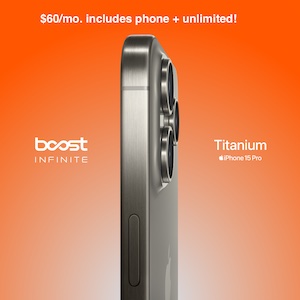Google’s Proposal to Fast Track Driverless Cars Approval A Threat to Public Safety On the Roads, Consumer Watchdog Says
“Google must answer 10 questions about the safety of its robot cars” says Santa Monica, California based nonprofit, nonpartisan consumer protection organization Consumer Watchdog, regarding a little-publicized proposal by Google to allow its driverless cars to detour U.S. auto safety laws that they say threatens public safety and security in a letter sent today to Secretary of Transportation Foxx and the National Highway Traffic Safety Administration (NHTSA).
Noting Google’s consistent refusal to disclose information about its driverless cars crashes, how its software algorithms will make life and death decisions, its vulnerability to hackers and collection of personal data, the non-profit advocacy group urged the Department of Transportation and NHTSA to require Google to answer ten questions about the safety of its robot car program within thirty days.
Though the agency has appeared to be promoting driverless cars in recent months, NHTSA will hold its very first public hearing on the subject tomorrow, Friday April 8, in Washington, D.C. Consumer Watchdogs Privacy Director John Simpson will testify at the hearing, as will former NHTSA head Joan Claybrook and Clarence Ditlow, Executive Director of the Center for Auto Safety.
“At the same time that Google wants to blow past federal safety requirements, the company has refused to provide detailed information that would enable the public, the press and policymakers to assess the safety and security of its autonomous cars,” said Harvey Rosenfield, Consumer Watchdog founder. “NHTSA’s job is to make sure the nations streets and highways are safe for motorists and pedestrians, not to promote robot cars or help Googles lobbyists circumvent the law. Before jumping on board the Google express, NHTSA should initiate a serious and careful public investigation into autonomous vehicles that begins with requiring Google to publicly answer questions about what its autonomous car technology can and cannot do.”
Google Proposes to Change Federal Safety Law Roadblocks
Federal law requires that automobile manufacturers demonstrate the safety of their vehicles to NHTSA through a formal regulatory process that enables American taxpayers and consumers to monitor and participate in the agencys decision-making process. A series of recent proclamations by NHTSA suggest that the agency is considering abandoning its statutory responsibility to set federal safety standards, Consumer Watchdog’s letter explains. In a move to pressure the agency, Google sent a letter to Foxx and Rosekind on March 11, 2016, requesting their support for congressional legislation that would allow the company to avoid compliance with the law.
Consumer Watchdog urged NHTSA to oppose Google’s efforts to skirt U.S. safety protections, and require Google to provide public answers to ten critical questions:
1. We understand the self-driving car cannot currently handle many common occurrences on the road, including heavy rain or snow, hand signals from a traffic cop, or gestures to communicate from other drivers. Will Google publish a complete list of real-life situations the cars cannot yet understand, and how you intend to deal with them?
2. What does Google envision happening if the computer driver suddenly goes offline with a passenger in the car, if the car has no steering wheel or pedals and the passenger cannot steer or stop the vehicle?
3. Your programmers will literally make life and death decisions as they write the vehicles algorithms. Will Google agree to publish its software algorithms, including how the companys artificial car intelligence will be programmed to decide what happens in the event of a potential collision? For instance, will your robot car prioritize the safety of the occupants of the vehicle or pedestrians it encounters?
4. Will Google publish all video from the car and technical data such as radar and lidar reports associated with accidents or other anomalous situations? If not, why not?
5. Will Google publish all data in its possession that discusses, or make projections concerning, the safety of driverless vehicles?
6. Do you expect one of your robot cars to be involved in a fatal crash? If your robot car causes the crash, how would you be held accountable?
7. How will Google prove that self-driving cars are safer than today’s vehicles?
8. Will Google agree not to store, market, sell, or transfer the data gathered by the self-driving car, or utilize it for any purpose other than navigating the vehicle?
9. NHTSA’s performance standards are actually designed to promote new life-saving technology. Why is Google trying to circumvent them? Will Google provide all data in its possession concerning the length of time required to comply with the current NHTSA safety process?
10. Does Google have the technology to prevent malicious hackers from seizing control of a driverless vehicle or any of its systems?
You can read the letter and the 10 questions for Google in detail here:
http://capitolwatchdog.org/sites/default/files/FoxxRosekind4-7-16.pdf
